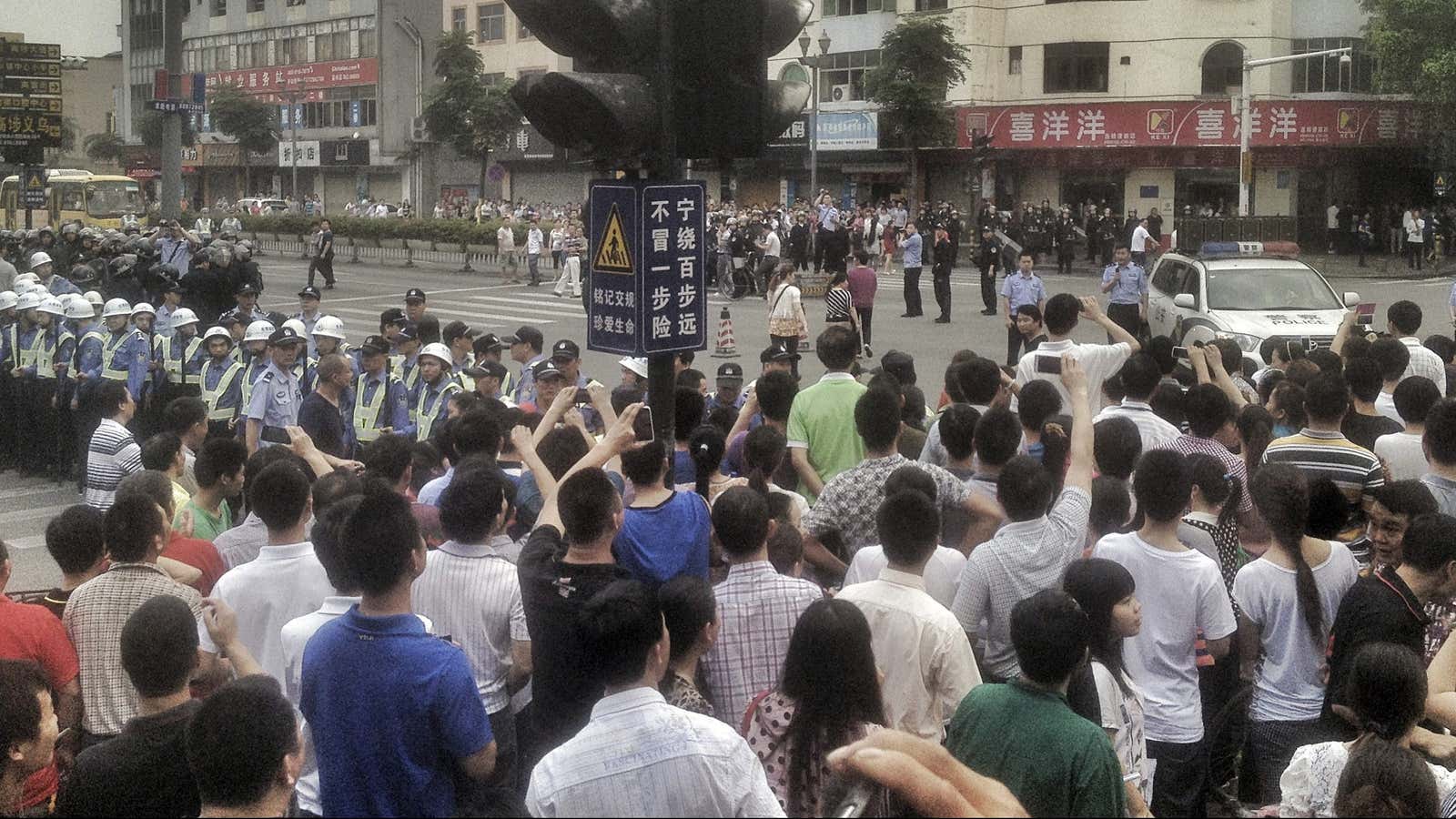Earlier this month a crackdown on labor activism in China struck its latest blow. Meng Han, who helps workers claim unpaid salaries or other compensation through collective bargaining, was sentenced to 21 months in jail. The government is taking activists like Meng out of action to preserve “social order”—but it could have the opposite effect.
Meng worked at the Panyu Workers’ Centre in the southern province of Guangdong, China’s manufacturing hub. Authorities detained him about a year ago, along with others working at area NGOs. In one of Meng’s projects, he helped workers at a Lide shoe factory win over 120 million yuan ($18 million) in compensation—one of the most successful collective bargaining cases in recent years in China.
Meng and his peers are under significant pressure, according to a recent complaint (pdf, p. 66) filed to the International Labour Organization:
[They] have been subject to repressive measures by the Government including arrest, detention, interrogation, seizure of documents and computers, surveillance at home and office and verbal and physical harassment. The [International Trade Union Confederation] believes that the charges levelled against them are not genuine but are intended to intimidate them and, by extension, the workers and worker organizations they have supported.
China’s crackdown on labor rights organizations comes as the country grapples with an economic slowdown that has contributed to more unrest, according to China Labour Bulletin (CLB), an NGO based in Hong Kong. CLB recorded 2,047 strikes in the first nine months of this year, compared to 1,869 in the same period last year.
Meng pleaded guilty amid continuing pressure and harassment of his family by authorities. His parents had to move out of their home after unidentified thugs attacked their apartment door with an axe:
Family members said authorities warned them against speaking to the media, according to posts by Meng’s girlfriend Xiao Yan on WeChat, a messaging app. Meng’s family were not reachable for comment.
Through his lawyer, Meng had earlier expressed his refusal to cooperate with authorities and incriminate colleague Zeng Feiyang in exchange for a lighter sentence. Zeng, the director of the Panyu Workers’ Center, was sentenced to a suspended three-year jail term after he was detained in early December during a crackdown that saw seven activists, including Zeng, arrested.
Beijing’s crackdown on activists in southern China is part of a bigger smear campaign. Last December state broadcaster CCTV alleged that Zeng took money from factory workers, had affairs with eight of them, and sent “vulgar” messages to women online. CCTV aired a “confession” by Zeng after he pleaded guilty during his trial in September 2015, part of a wave of forced confessions by dissidents that have been appearing with increasing frequency on Chinese television.
But “the way that Chinese workers have been exploited in the past 30 years has now come to an end,” said CLB director Han Dongfeng, who is in exile in Hong Kong. “China now has a new generation of workers who will not back down to fight for their own rights.”
Arresting the very people who are working to defuse potentially violent social tensions “is a mistake,” particularly if the government wants to “minimize industrial conflicts,” said Chris Chan, a sociology professor at Hong Kong’s City University who specializes in labor policy and civil society in China.
Chan also warned of the possibility of spontaneous collective action turning into “wildcat strikes,” or violent confrontations that organizations like the Panyu Workers Association have tried to prevent for years. “Structural problems like industrial restructuring, relocations, and downsizing cannot be removed by repressing civil society.”
